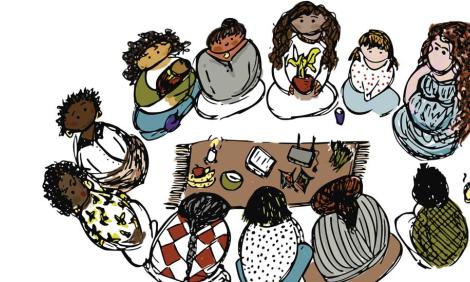
intentional infrastructures: feminist principles of the internet and community networks
This edition takes a closer look at the realities of the women who are working for and with their communities through enabling, weaving, sustaining installing, running and advocating for community networks. Community networks are zones of autonomy around infrastructure and technology that hold the promise of connecting the unconnected and also are becoming creative and feminist sites of…

Editorial
Women-circles that hold and ground community networks
What is the potential overlap between the energies and drive towards building a feminist internet and the growth of community networks in different parts of the world where communities build their own infrastructure and connectivity? In this article, we explore the ways in which community networks question gender norms, and the need for feminists to build infrastructure.

Feminist talk
News about our community network – Portal sem Porteiras
In this layered podcast, the members of Portal sem Porteiras, Marcela and Luisa explore their excitement over the possibilities of their community network and how they are re-finding meaning and solace in connections.
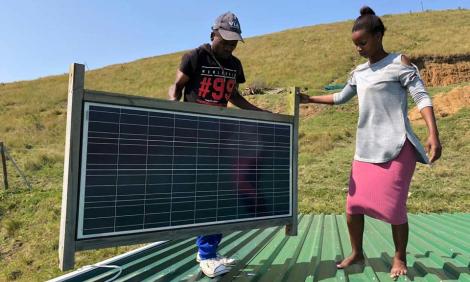
In depth
Privileging the social over the technical in community networks: Interview with Sol Luca De Tena
Zenzeleni, which means ‘do it yourself’ in isiXhosa, has become exemplary of the unique challenges and remarkable successes of a community network in the global south. In this interview, Sol Luca de Tena discusses how the cooperative business model for Zenzeleni has evolved to center community needs and priorities.
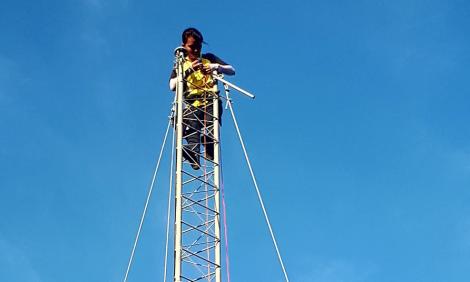
In depth
Observing a community network in the Philippines through a gendered lens
In this interview, Serene Lim dives deep into what are the gender implications of making a community network in a remote area of the Philippines - from tackling gender stereotypes to the distribution of labour of running a community network to the benefits of access for communities often overlooked by telecommunications companies.
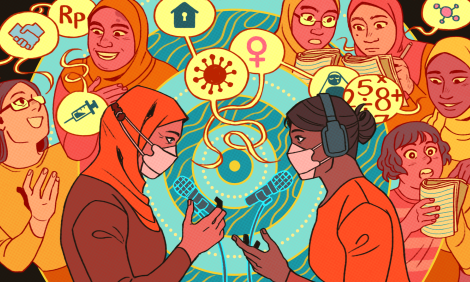
Feminist talk
Women's Community Radio: How Islanders And Mountain Residents Are Coping With The Impact Of Covid-19 in Rural Indonesia
The COVID-19 pandemic highlighted the digital divide that exists in rural Indonesia as the world moved to technology for everyday needs and tasks. The residents of the villages set up community radios to address this gap, which then helped in addressing many economic, educational, communication and entertainment needs of the residents.
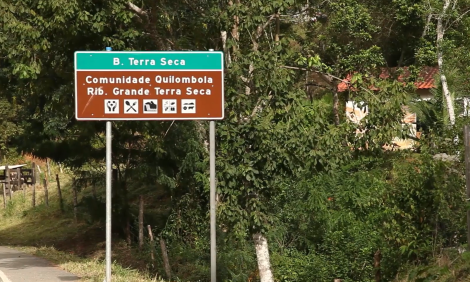
Feminist talk
Connecting reflections through a community network's experience in Brazil
Community networks in quilombolas from Terra Seca/Ribeirão Grande in Brazil have been helping households to connect to the internet while serving individual needs of residents. In the backdrop of the FIRN research exploring the same, the authors discuss how these community-led networks connect communities with technology.

Infrastructures of resistance: Community networks hacking the global crisis
Community networks proved that an infrastructure is only as robust as the more caring of its communal nodes. In this second year of living in times of unequal global health crisis, we are glad to present this special edition of GenderIT.org: Infrastructures of resistance: Community networks hacking the global crisis and to share with our readers how intersectional approaches in CNs…
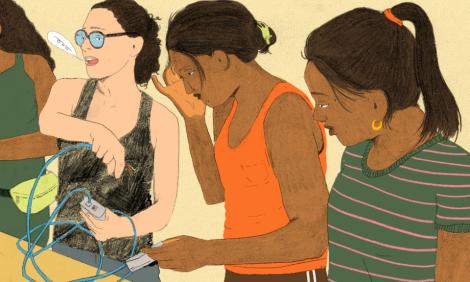
Feminist talk
Sharing human and internet bandwidth of a community network in the middle of a pandemic
In Vale do Ribeira, São Paulo, Brazil, a group of ecological, quilombola farmer women, in partnership with two feminist organisations: APC and Sempreviva Organização Feminista (SOF), managed to deploy and operate their Wi-Fi mesh network. Bruna Zanolli highlights the importance of building trust, empathy and feminist guidelines in the community so that their internet infrastructure could…
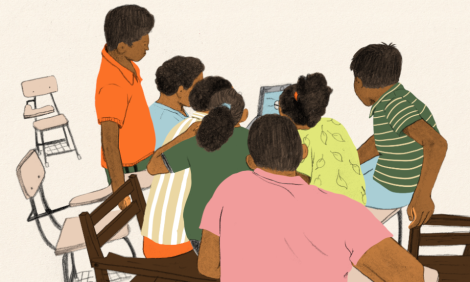
Feminist talk
Community networks: states, solutions and communities
Upasana Bhattacharjee further builds on this notion of community network not only as a local connectivity infrastructure serving the unserved people and rural areas left out by markets or states, but mainly as a social actor that builds knowledge, autonomy and agency at the local level, through a community-owned infrastructure and organized operation.




